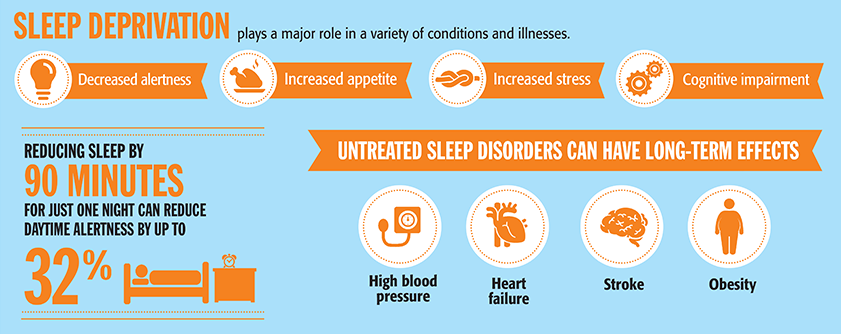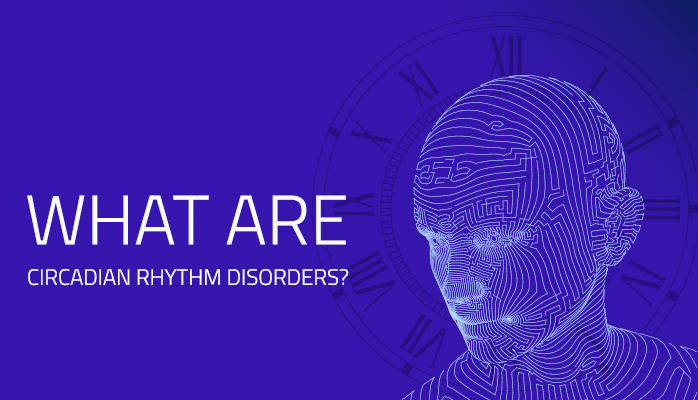What is a Circadian Rhythm?
Your circadian rhythm is like the conductor of your body's sleep orchestra. It orchestrates the perfect balance of sleep and wakefulness, with melatonin playing a key role as the sleep hormone. Nestled within the depths of your brain, specifically the suprachiasmatic nucleus of the hypothalamus, your biological sleep clock is strategically positioned behind the delicate nerves of your eyes. This prime location allows it to harmonize with the ebb and flow of light, effortlessly regulating melatonin production in response to changes in your external environment.
Thus, circadian rhythm disorders are often in response to your external factors:
- Extreme light conditions
- Extreme dark conditions
- Shift work
- A non-standard sleep schedule that conflicts with your work schedule, such as needing to start work at 7am but getting naturally tired at 2am
Symptoms of circadian rhythm disorders are fairly straightforward: when you want or need to sleep is when you can’t sleep. The result are insomnia symptoms and sleep deprivation.
What is Melatonin?
Melatonin is the sleep hormone that regulates sleep. It is light sensitive, meaning it responds to changes in light. As darkness transitions to light, your body stops production of melatonin. As light changes to dark, your body increases melatonin production.
When melatonin production is disrupted, such as from excess blue light before bed or alcohol, you disrupt your circadian rhythm. A disrupted circadian rhythm quickly falls down the slippery slope of erratic sleep and can result in:
- Onset of insomnia or like-symptoms
- Increased severity of existing insomnia
Extreme Light and Extreme Dark as Cause of Circadian Rhythm Disorder
Extreme lighting conditions disrupt the delicate balance that melatonin relies on for its production and regulation.
During the never-ending daylight of an Alaskan summer, your body may not receive the signal to start producing melatonin since it never gets dark, from midnight in Juneau to the far reaches of the north.
Similarly, the constant darkness of Alaskan winters can throw off your melatonin production because it gets dark so early, or is dark all the time, and your body lacks the natural cue to start producing it.
Whether it's extreme light or extreme dark, these conditions can greatly disrupt your circadian rhythm and throw your sleep schedule completely off track.

Shift Work Sleeping Disorder
Do you work hours outside of the "typical” 8-5 work hours? Or do you work many days on and then have many days off? If so, then you are like millions of Americans who are considered shift workers. Alaska in particular has many shift workers because of the aviation industry is popular and because we have long summer daylight for construction, fishing, and so on.
Common types of shift work occupations include:
- Pilots
- Construction workers
- Police workers
- Doctors and nurses
- Firefighters
- Taxi/Lyft/Uber drivers
- Customer service
- Retail
While shift work can have numerous benefits, such as better pay for similar jobs, it can also have some downsides, one being called shift work sleeping disorder which is where you develop irregular sleep patterns and sleep deprivation due to your shift work.
Natural Clock and Work Clock Conflicts
Our biological clocks are all different. Some people are night owls and some people are morning larks. For many of us, it feels as though we are born this way.
Unfortunately, our natural urges to sleep can conflict with our work schedules. For example, your natural biological sleep clock may be to sleep from 2am to 10am, but your occupation requires you to be at work at 6am. This disconnect can lead to under-sleeping and chronic sleep deprivation.
Combatting this issue is straightforward:
- Find different employment that aligns with your clock
- Do everything you can to get to bed at the required time, even though it’s not in line with your biological sleep clock
If you live in Alaska and your sleep schedule feels continually off – or you can’t seem to establish any kind of sleep schedule – please take this free online sleep test to start your road to a better night’s rest.


